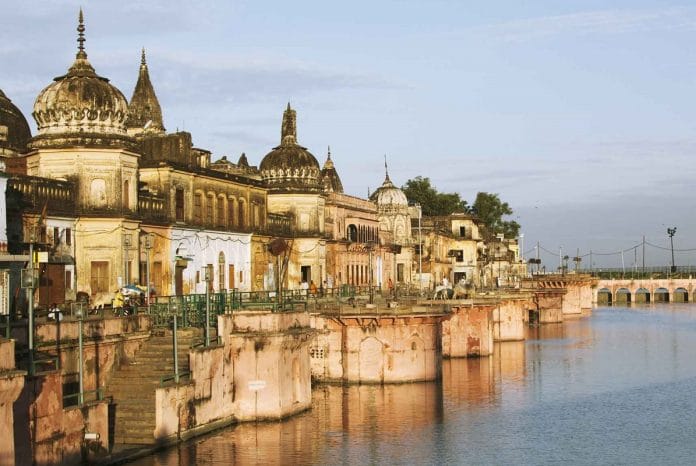Any political opposition to the Ayodhya Ram Mandir issue will only lead to further polarisation.
It is raining verdicts in the Supreme Court of India. One verdict that will have far-reaching consequence is the Ayodhya Ram Janmabhoomi ruling this week, which declined to revisit the 1994 judgment that had categorically stated that a mosque was not integral to the practice of Islam.
The Supreme Court bench headed by Chief Justice Dipak Misra in a majority verdict of 2:1 held that the civil suit in the matter of the Ram Janmabhoomi case has to be decided on the basis of evidence. With this verdict, the path for speedy hearing on the contentious Ayodhya case has been made easier.
The Supreme Court is on the cusp of creating history through this judgment. If it upholds the right of Hindus to build the Ram temple at the birthplace of Ram, it would be a landmark decision. In a way, this would also knock out one of the most thorny issues occupying disproportionate space in our political discourse, at the cost of other matters of greater importance.
Also read: Today’s Babri hearing could decide if Ayodhya dispute will be resolved before 2019 polls
The Supreme Court, in Dr M. Ismail Faruqui v/s Union of India case, considered the question of state’s power to acquire a place designated as a religious place of worship, essentially an immovable property protected under Article 25 and 26 of the Constitution.
The apex court was of the view that while offering prayer (namaaz) or worshipping is a religious practice, its location, like masjid in this case, would not be an essential or integral part of such religious practice unless it has a particular significance for that religion.
This clearly meant that offering namaaz at the dilapidated structure (called Babri Masjid) in Ayodhya, central to the dispute, was not integral to Islam, unless that mosque had any particular significance in Islam.
The Muslim litigants in the Ayodhya dispute case had filed for a review of the 1994 judgment after the Lucknow bench of the Allahabad High Court in its 2010 verdict said the disputed site be divided into three parts – one for deity (Ram Lalla Virajmaan), another for the local Nirmohi Akhara and third to the original litigant in the case representing Muslims.
Also read: Photographers summoned for Babri trial worried about grainy memories of 1992 demolition
When the matter was brought before the Supreme Court, it was argued that while Muslims can offer prayers anywhere, even on the streets or in the confines of one’s house (as in the case of Muslim women who are not allowed to offer namaaz along with men in mosques), the birthplace of Ram cannot be shifted.
Ironically, those representing the Muslims did not contest the 1994 judgment until the appeal against the 2010 Allahabad High Court judgment on the ownership of the disputed land was taken up for hearing by the Supreme Court. This implies an intent to delay the entire case and keep it lingering for eternity on the plea that ‘issues of faith’ cannot be decided by the court of law.
It meant that the appeal against the Allahabad High Court judgment could be heard only after the the issue of “namaaz at Babri Masjid as a fundamental religious right of Muslims” could be disposed of by a larger bench – a matter that could have gone on for years.
By dismissing the demand for referring this issue to a larger bench, the Supreme Court has paved the way for speedy hearing of the original suit, which otherwise could have lingered well beyond 2019, a crucial election year.
Also read: Final hearing of Ayodhya Ram Mandir land dispute to start 5 months before Lok Sabha polls
The Ram temple issue has dominated the political scene since the Palampur resolution of the BJP, which has its genesis in the political support that the Babri Masjid Action Committee received when it was floated as a pressure group by Muslims. The Rath Yatra by BJP stalwart L.K. Advani catapulted the BJP from a party that had mere two seats in Parliament to a formidable political force.
Any political opposition to the Ram Mandir issue will only lead to further polarisation. In the best interest of democracy and positive developmental politics, it would be fitting to put the Ayodhya issue to rest once and for all.
The author is former editor of ‘Organiser’.






